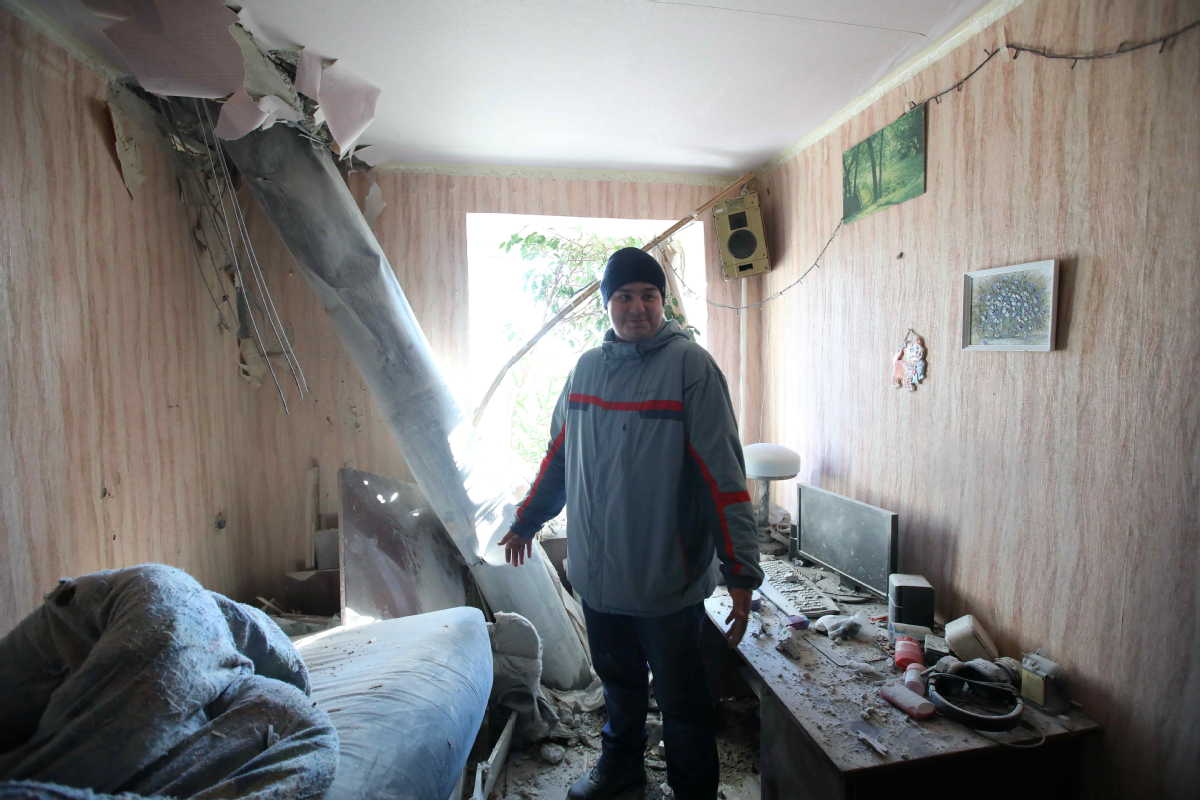All will pay price for escalating Ukraine crisis
By Martin Sieff | chinadaily.com.cn | Updated: 2022-02-25 10:58

Russian President Vladimir Putin authorized on Thursday "a special military operation" in Donbass, and Ukraine confirmed that military targets across the country were under attack.
From the perspective of Russia, 30 years of continued frustration and even alarm at the relentless eastward expansion of NATO and continuous efforts to destabilize the countries of its "Near Abroad" have now come to a head. Putin has drawn a clear line and is using the armed forces of the Russian Federation to enforce it.
Under Putin's leadership, Russia has steadily recovered from the decade-long economic depression and rising death rates of the catastrophic Boris Yeltsin era. Today, Russia is a global food exporting power. It provides 30 percent of the total grain exports to feed the world, including to Egypt and Indonesia.
The Russian people, despite the sanctions the US and some other Western countries imposed on Moscow in 2014, continue to enjoy a high standard of living. Russia sits on at least $620 billion of foreign exchange reserves. And far from impoverishing the Russian people, many believe Putin's policies have raised them to perhaps the highest standard of living in their history.
Economic confrontation over the Ukraine conflict will certainly hurt Russia, but it will hurt the West, especially the United States and Germany, far more.
The financial sanctions US leaders have imposed, and plan to impose in the future, on Russia will certainly cause short-term problems for Moscow. But popular sentiment in Russia favors protecting the Russian-speaking populations in Donetsk and Luhansk, the two breakaway Ukrainian enclaves whose independence Putin recognized on Monday.
Russia claims self-sufficiency in food and energy, and has enough foreign exchange reserves. It is therefore in a far better position to ride out the economic confrontation than either the US or the European Union.
Germany will be the prime economic victim of the decision, insisted upon by the US, to halt the Nord Stream 2 pipeline project. The energy crisis this is certain to ignite will create political upheaval. And although there is no foreseeable danger of any revival of Nazism in Germany, the US intelligence services and private contractors have been assiduously building up the most dangerous openly Nazi movement since the crushing of Adolf Hitler's Third Reich. And they seem to be doing so in Ukraine, not Germany.
The underlying cause of the Ukraine crisis lies in the US' inflexible policy of relentlessly expanding NATO and its chain of tamed, chaotic regimes ever eastward into Eurasia. This may have prompted Moscow to assume the aim of these efforts is to set off the "mother of all color revolutions" in Russia.
Perhaps that's why Putin, backed by the State Duma, or the lower house of Russian parliament, and military, has drawn a line to stop that process. The development of operational hypersonic weapons at least five years and probably far more ahead of the US has tilted the global strategic balance in favor of Moscow.
The sane course of action for the Joe Biden administration would be to give Russia the reasonable pledge it has so long sought on no further NATO expansion and on the permanent neutrality of Ukraine. Two successive US presidents, Ronald Reagan and George Herbert Walker Bush, made these commitments to Moscow in 1990-91, as some surviving US officials continue to testify.
As for Russia, there is reason to believe it will honor such a commitment, because it has respected the neutrality of Austria since 1955 and that of Finland since the end of World War II.
However, US President Biden, Secretary of State Antony Blinken and National Security Advisor Jake Sullivan appear likely to continue their current policy of confrontation, ruling out any sane settlement or compromise. All the three seem to believe everything uttered by neoconservative Victoria Nuland, US under-secretary of state for political affairs, who reportedly handed out cookies on the streets of the Ukrainian capital of Kyiv to murdering, violent mobs during the 2014 "Maidan revolution" that toppled the democratically elected government of Ukraine.
Since then, Ukraine's already weak economy has collapsed. And there is a real danger of Ukraine facing a famine and chaos in the coming months. Only, ironically, the conflicted areas are likely to be insulated from such fearful developments.
A century ago, Ukraine suffered the full horrors of the Four Horsemen of the Apocalypse — war, famine, supposed human beings acting as ravenous wild beasts, and plague — which claimed millions of lives from 1914 to 1945. It would be the cruelest and most horrific of ironies if ignorant, incompetent policies hatched by a country thousands of kilometers away unleash them to ride again.
The author is a senior fellow of the American University in Moscow.
The views don't necessarily reflect those of China Daily.
If you have a specific expertise, or would like to share your thought about our stories, then send us your writings at opinion@chinadaily.com.cn, and comment@chinadaily.com.cn.
























